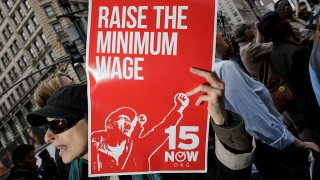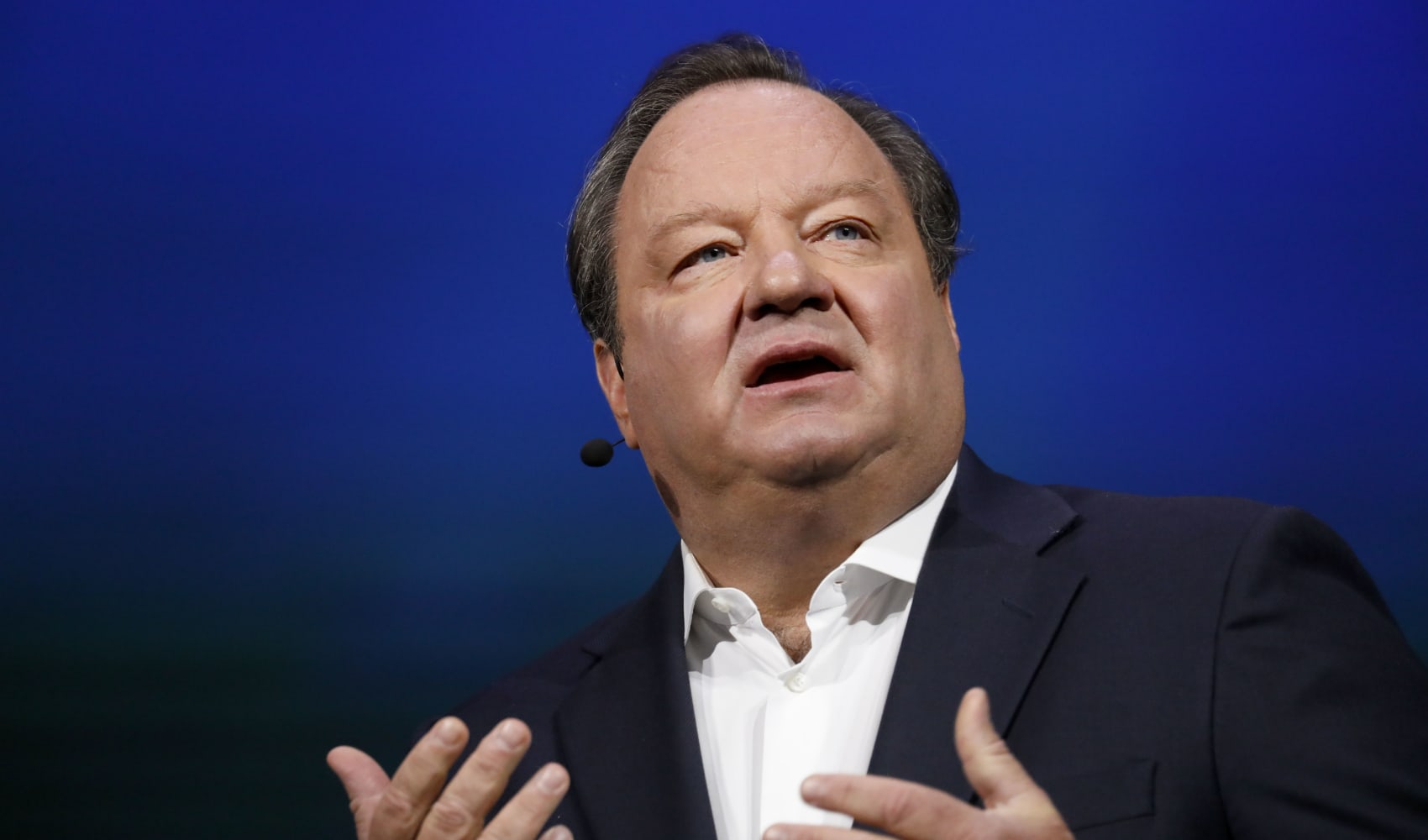
The economy may have been top of mind for voters across the country, but in Nebraska, Nevada and the District of Columbia, voters were able to directly impact people's paychecks with measures to increase the areas' minimum wages.
In Nebraska, initiative 433 — which nearly 60% of voters approved on Tuesday — charts a plan to bring the state's minimum wage up to $15 over the next few years, then ties increases to the consumer price index (CPI) thereafter. The state's minimum wage is currently $9 per hour and will go up accordingly through 2026:
- $10.50 per hour by 2023
- $12 per hour by 2024
- $13.50 per hour by 2025
- $15 per hour by 2026
After 2026, the annual CPI for all consumers in August will determine increases to minimum wage the following January. If the measure was applicable for a January 2024 increase, the minimum wage would go up about 8%, for example.
Workers and advocacy groups celebrated the outcome this week. "Our experience talking to Nebraskans from rural and urban communities all across the state throughout this campaign was that the current $9 minimum wage was simply not enough for anyone to make it," says Becky Gould, executive director of nonprofit Nebraska Appleseed, which is a member of the Raise the Wage Nebraska coalition.
Nevada, on the other hand, may increase its minimum wage, but remove a clause that ties raises to the CPI, though they were capped at a 3% increase. The state is still waiting on the final vote tally to see if the measure passes.
If it does pass, the minimum wage will increase from $9.50 for employees with employer health benefits and $10.50 for employees without employer health benefits to $12 for all employees and remove inflation-related increases.
Money Report
The measure would also remove the two-tiered system that allows employers who offer health insurance benefits to pay wages a dollar below the minimum.
Four states and the District of Columbia already adjust their minimum wages annually based on the CPI, according to the National Council for State Legislatures:
- Maine
- Montana
- Ohio
- Vermont
Vermont is unique, however, in that it increases minimum wage by the CPI percentage or 5%, whichever is smaller. So despite record-high inflation sitting well above 5% this year, those earning minimum wage in Vermont won't see fully corresponding raises.
Meanwhile, California and Oregon's minimum wage increases will begin reflecting the CPI in 2023, and New Jersey's measure takes effect in 2025.
Voters in D.C. also approved changes to minimum wage for tipped workers. Currently, employers are legally allowed to pay those who earn tips — primarily restaurant servers and bartenders — a far lower wage than the regular minimum with the expectation that customers' tips will make up the difference. If tips do not bring worker's wages to the full minimum wage, businesses are required to pay out the gap.
But D.C.'s $5.35 per hour minimum for tipped workers will now gradually rise to meet the standard $16.10 by 2027.
These raises follow an even larger wave of states increasing minimum wages this year — workers in 26 states saw minimum wage go up in 2022, according to a report from Wolters Kluwer Legal & Regulatory U.S.
The federal minimum wage remains unchanged at $7.25 since 2009, though President Biden did give a boost to federal employees earlier in his presidency, raising their minimum wage to $15.
Advocates continue to push for increasing the minimum wage to improve living conditions for workers and their families.
"This situation is not unique to Nebraska, and it is not surprising that the issue is resonating in other places around the country," says Gould. "Raising the wage will give dignity to hard work, help reduce poverty, close the racial and gender pay gaps, and fuel our local economy."
Want to earn more and work less? Register for the free CNBC Make It: Your Money virtual event on Dec. 13 at 12 p.m. ET to learn from money masters like Kevin O'Leary how you can increase your earning power.
Don't miss: Minimum wage workers in New York City need to clock over 100 hours a week to afford rent






